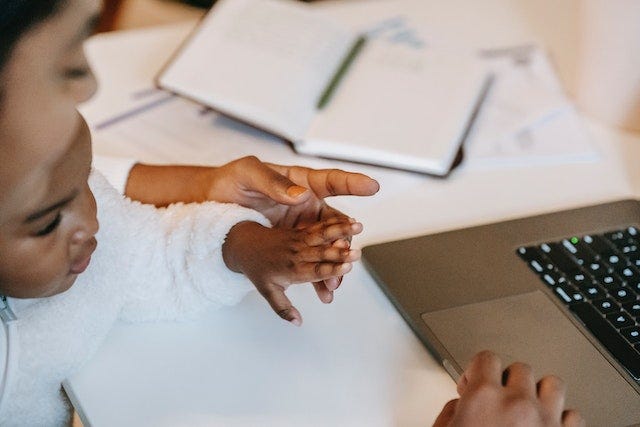Women work more hours than men (but don't get paid for it)
Welcome to the bi-weekly update (#167) where we dive deeper into key topics, themes or issues specific to women and their lived experience.
Women work more hours than men; they carry out three quarters of the world’s unpaid work: 11 billion hours a day.
Across the globe, 42% of women cannot get jobs because they are responsible for all the caregiving, compared to just 6% of men.
In addition to the loss of earnings due to maternity leave and part-time work, women’s work is often grossly undervalued or entirely unpaid, as economist and author, Vicky Pryce describes in her book: Women vs Capitalism.
And this is true for every part of the world: from Latin America, Central and Eastern Europe to the developed countries.
The more time a woman spends on unpaid work, the less time she can spend on building her skills, experience and her network. There is a real opportunity cost for women in terms of their career and promotion.
Unpaid work can also lead to more stress and anxiety in addition to far less respite and leisure time.
With less earnings available, women have less earnings to invest in building their wealth. This leads to having less funds for retirement, causing greater hardship in old age.
Moreover, as women’s unpaid work is not recognised, it remains unmeasured and therefore omitted from official GDP (gross domestic product) estimates.
GDP, which measures the national economy, only captures data for the production and consumption at a given paid price.
If women’s work was measured, the ONS (Official National Statistics) has calculated this to be valued at over £1 trillion+ in the UK (alone).
And if we valued care work the same as other work, it would be worth nearly $11 trillion a year, according to research by Oxfam.
Unpaid and underpaid care work perpetuates gender and economic inequalities. Women continue to be exposed to more financial risk as a result.
On a positive note, the UK government recently announced that 30 hours a week of free childcare would be made available for children aged from 9 months (to 3 years).
Governments need to invest in public services and infrastructure in order to free up women’s time, so women can fully participate in the workforce and continue to build their financial future.
The Purse Ltd. Copyright 2023 & All Rights Reserved.
The Purse provides content for informational purposes only, we do not recommend products or services or provide investment advice. Please do your own research or speak to a financial adviser.



